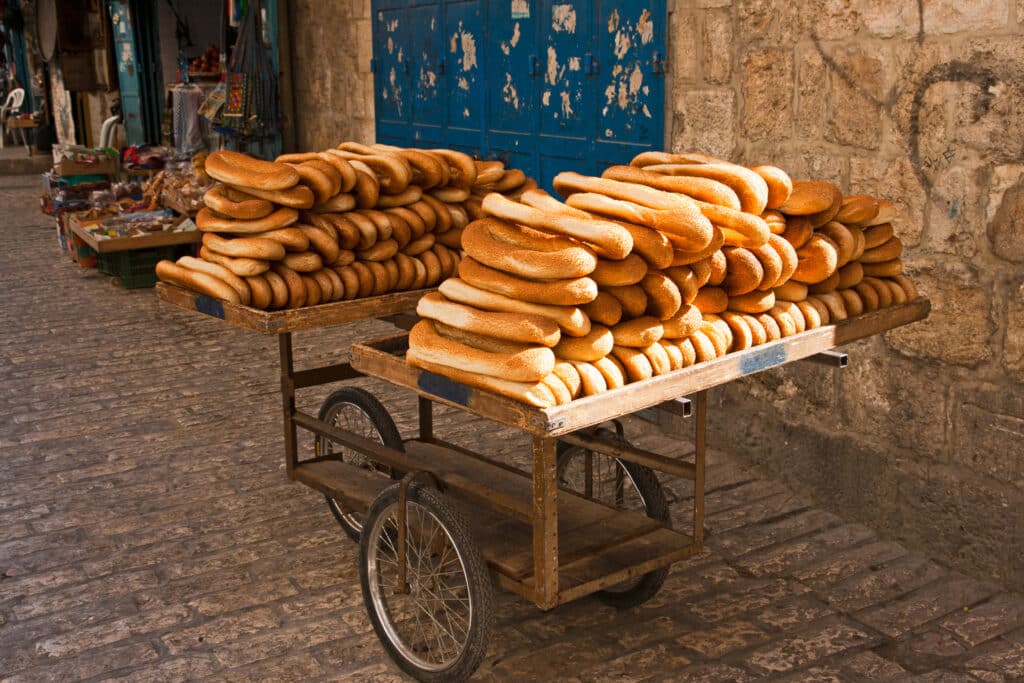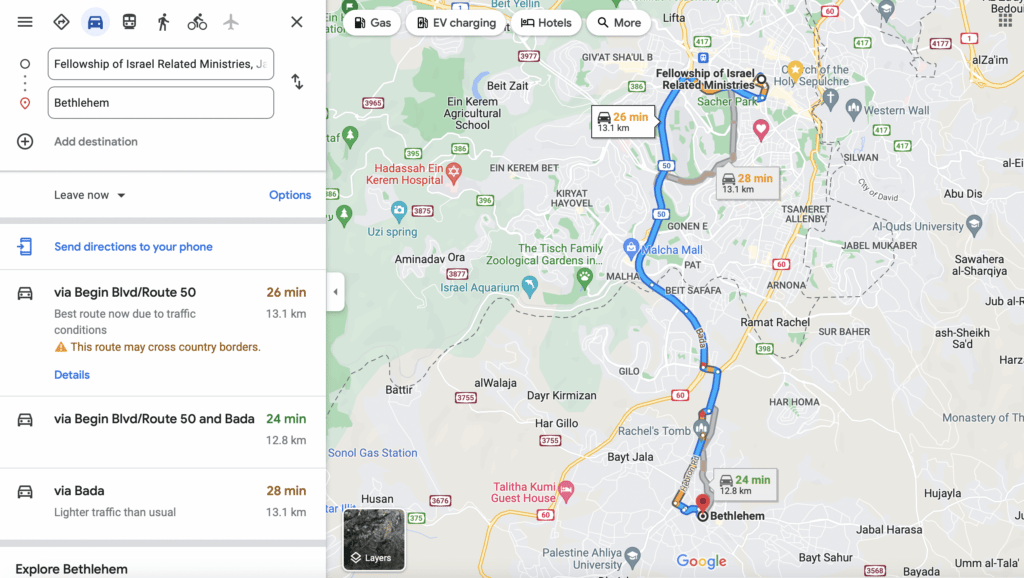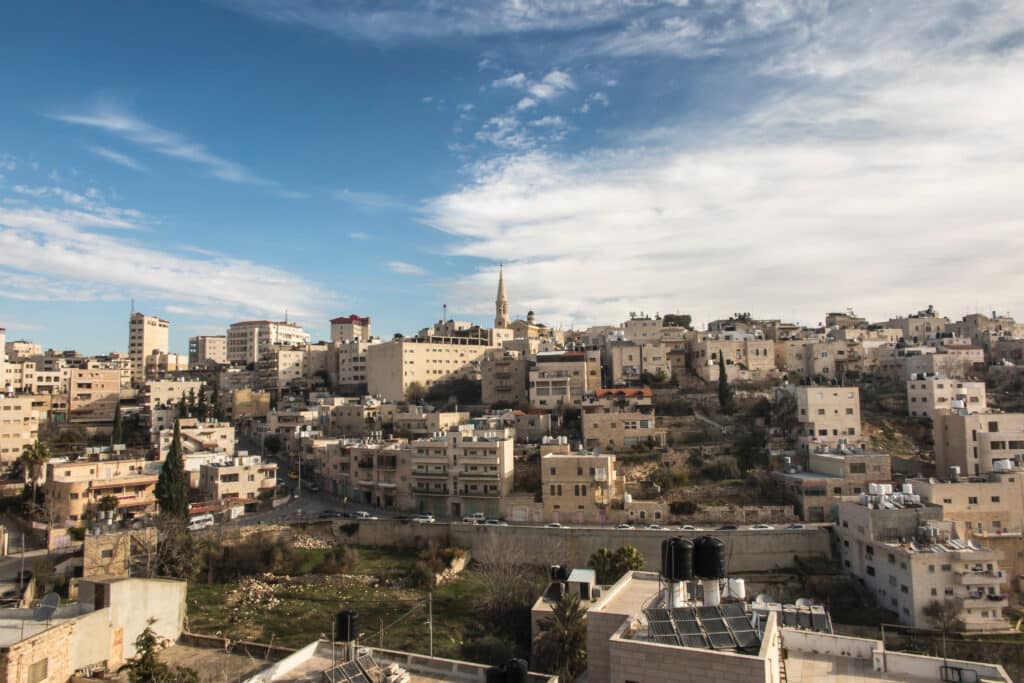Jesus Born in Bethlehem
Jesus was born in Bethlehem – many know this simple fact, whether they are Christians or not. Popularization of Christmas celebrations around the world made “Bethlehem” a staple.
But few of the same people would be able to answer why Jesus was born in Bethlehem. Or whether it was significant that it happened there, and not anywhere else.
This small town, less than 10 miles from Jerusalem, is mentioned both in the Old and the New Testament. And yet, there are no castle ruins to visit, no archeological digs of big temples. It seems that both in the past and today Bethlehem has been a humble town.
What do we actually know about Bethlehem then? And why did God find it worthy to go down in history as the birthplace of His only begotten Son? Let’s take a closer look this town and its past to find out.
The House of Bread
Pronounced in Hebrew “Beit-lehem”, the name of the village means House of Bread. There are also other theories surrounding its meaning, but the spelling in the Hebrew Bible does not leave much room for speculation.
Though Bethlehem was a Jewish town throughout Biblical history, today it is predominantly Muslim. And if you haven’t visited the Holy Land, you may be surprised to hear that the small minority that aren’t Muslim, are not Jewish. Instead, they are Christians!
Nevertheless, the numbers of Christians in Bethlehem are sadly dwindling. In 1947, the Christian population of Bethlehem accounted for 86% of its residents. By 2016 that number declined to mere 12%.
With so few Christians and no Jews in today’s Bethlehem, it may be hard to recognize the city’s rich Biblical history. What exactly do I mean?
Bethlehem before Jesus
Though it may sound surprising, the town of Bethlehem appears in the Old Testament a lot more than in the New. Yes, we know Bethlehem as the birthplace of Jesus. But the reason why it was chosen in the first place is because of its background.
Bethlehem is first mentioned in the Bible as the place where the matriarch Rachel died and was buried (Genesis 48:7). But more significantly, the little town became recognizable by all of Israel because of the lineage of King David.
David’s great grandmother, Ruth, was a Moabite daughter-in-law of Naomi, whose family came from Bethlehem. After losing her husband and sons in the land of Moab, Naomi returned to Bethlehem. And Ruth vowed to follow her wherever she went.
Ruth couldn’t have known if there was a future for her in Bethlehem. But God was merciful to her, and in the fields of Bethlehem Ruth met her husband Boaz. In that way, once a stranger in the land, Ruth was given a spot in the lineage of Israel’s royalty.
Why was Jesus born in Bethlehem?
Nevertheless, all these stories beg a question: do they have anything to do with Jesus? Although it is not clear at first, the answer is yes! The prophet Micah noted:
But as for you, Bethlehem Ephrathah, too little to be among the clans of Judah, from you One will go forth for Me to be ruler in Israel. His goings forth are from long ago, from the days of eternity. (Micah 5:2)
Because of these words, the Jewish people knew that Messiah would be born in Bethlehem. (To read more about what prophesies Jesus fulfilled, go here.
The Scriptures laid out some specific signs to look for. The Messiah would be from Bethlehem, and He would be from David’s kingly line.
A Thin but Strong Thread through History
It is not accidental that Bethlehem draws a connection to the patriarchs and matriarchs of God’s chosen people. As well as, that it links it to Israel’s most beloved king who raised up a tabernacle of praise and set the ground for the building of the Temple.
This thread of important characters is evident. But still, neither Israel’s forefathers nor King David were nearly as important as the promised Messiah. So, Bethlehem reappears throughout the history of God’s people Israel at pivotal turning points.
And as the birthplace of Jesus, Bethlehem rose to a whole new level of prominence in the new era. But it took several centuries before it became recognized on a wider scale.
Land Ruled by Jews and Romans
As previously stated, throughout most of its Biblical history Bethlehem was a humble village that stood in the shadow of nearby Jerusalem.
All the tribes of Israel would pilgrimage to Jerusalem at least three times a year to celebrate the Lord’s feasts. But a young family from the Galilee embarked on an additional journey one year. And it was not voluntary.
Joseph, a carpenter, and his pregnant wife Mary headed not to Jerusalem, but to Bethlehem instead. With few riches to their name, they traveled on a donkey, hoping to find a roof over their heads upon arrival.
They left the comfort of their home in Nazareth, because a Roman census required all men to return to their ancestral towns to register. This is where we learn that Joseph was a descendant of King David, thus he had to return to Bethlehem (Luke 2:4).
The Greatest Miracle and the Worst Nightmare
Many of us know the story of Jesus’ birth well, because we hear it every December. There was no room at the inn for Mary and Joseph, so Jesus was born in Bethlehem in a manger. If you ever cared for an infant, you probably cannot imagine what that must have looked like.
But we should pause here for a moment. It is truly astounding that the God of the universe decided for His Son to be born on earth and experience this most fragile stage of life. As an innocent baby, He was fully dependent on Mary and Joseph’s competency as parents.
As if that was not enough, Jesus’ life was put at great risk when the news of his birth reached King Herod in Jerusalem.
A group of wise men recognized signs and prophesies about a newborn king, so they arrived in Jerusalem looking for him. Feeding Herod’s greatest fear – of being replaced – they inadvertently put baby Jesus in grave danger (Matt 2:4-6).
Consequently, Herod ordered an execution of all male children in the vicinity of Bethlehem.
Jesus of Bethlehem or Jesus of Nazareth?
These chilling events are the reason why Jesus didn’t in fact grow up in Bethlehem. Warned in their sleep by the angel of the Lord (Matt. 2:13), Joseph and Mary took little baby Jesus and fled to Egypt.
They return to the Promised Land many years later. But this time they bypassed Bethlehem and traveled all the way back to Nazareth, where they had lived before Jesus arrived.
After the Gospels, we no longer hear about Bethlehem in the New Testament. It doesn’t seem like Jesus felt the need to bring His disciples there, to show them where He was born. In fact, there is no indication that celebrating one’s birth was a thing in those days.
More often than not, the Gospels describe Yeshua as “Jesus of Nazareth”. That was the village He was associated with and He was recognized in His day by that name.
Bethlehem Goes Down in History
Having gone through the Biblical records of Bethlehem, a few things come to mind. Bethlehem was not a kingly or priestly city in a practical sense. It was not a military base either, even though King Herod built a fortress for himself nearby.
A comfortable haven in the land of Benjamin, the little town of Bethlehem sets off no big fireworks in history books. It is not flashy or loud. “How still we see thee lie”, says the classic hymn, and that is its image painted in Scripture.
But Bethlehem also went down in history, like another song says, as a city with no room for its King. The peaceful hamlet did not allow great people nor big events disturb its serenity. Whether it was to its detriment or advantage, we may never know.
Have you been to Bethlehem? What did you think? Share your experience with us.

Hanukkah Guide: Free PDF Download
More than just “the Jewish answer to Christmas,” what is Hanukkah exactly? Where did this holiday originate? How did Jesus celebrate it? How do we celebrate Hanukkah today?
You’re about to get these answers to these questions and uncover the symbols, prophetic meaning and traditions of Hanukkah.
Articles Related to Bethlehem
Estimated reading time: 7 minutes


